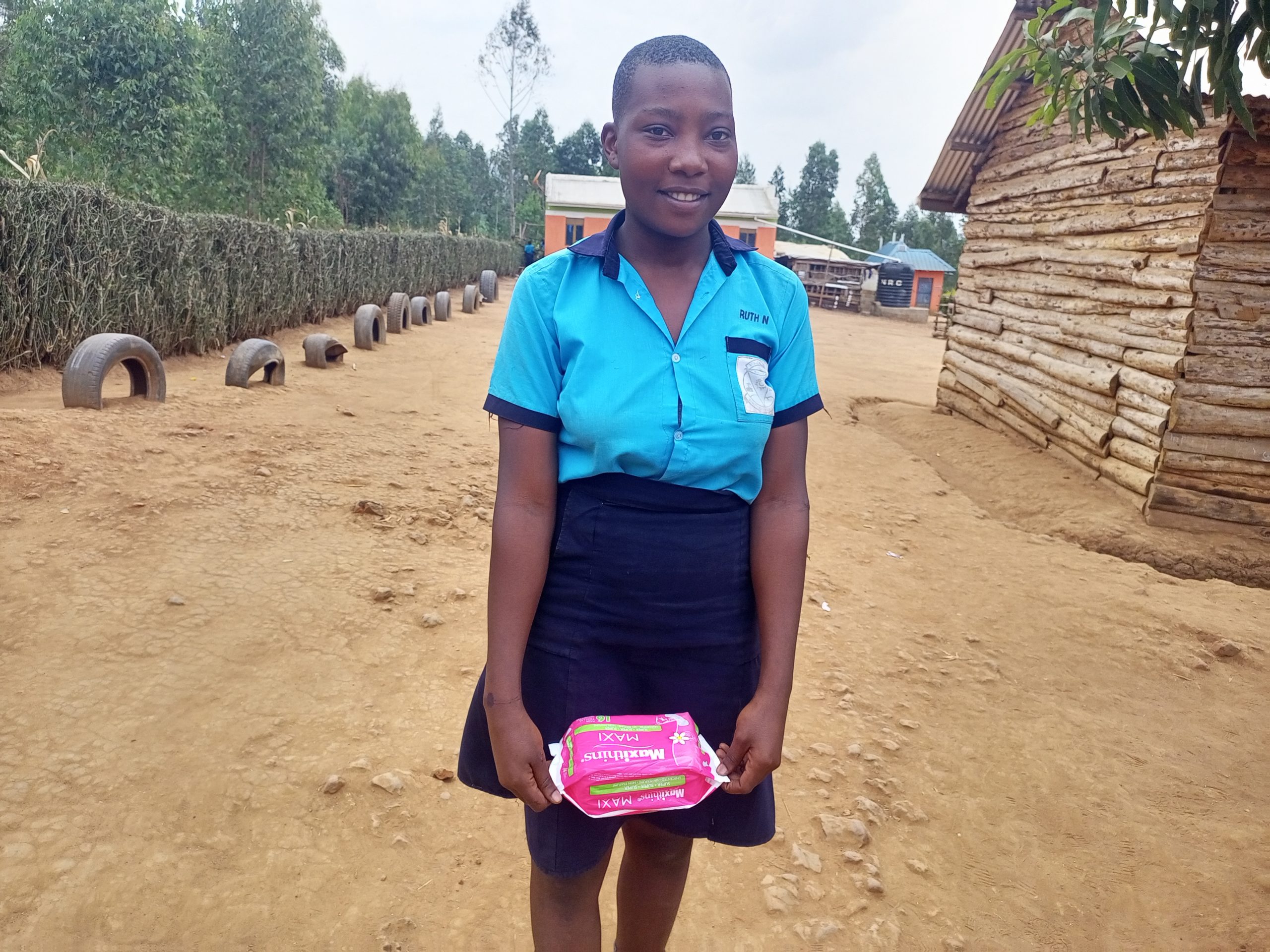“Now I Can Learn with Confidence” — Nahweera Ruth Shares Her Journey to Menstrual Dignity.
Nahweera Ruth, a 15-year-old refugee and Primary Seven candidate at Visionary Blue School in Oruchinga Refugee Settlement, dreams of becoming a doctor one day. Her ambition is fuelled by a desire to save the lives of mothers, many of whom, she believes, die during childbirth, particularly in conflict-affected regions like the one she calls home.
During a school outreach on hygiene conducted by Shared Action Africa, where girls received training on personal hygiene and menstrual health, Nahweera privately shared the challenges she faced before the program reached her school.
Having lived the realities of period poverty, Nahweera understands all too well the silent struggles many refugee girls endure during menstruation. In a candid conversation, she recounted her experience:
“Before Shared Action Africa came to our school, my monthly periods were the hardest time of the month,” she said softly. “I felt alone, ashamed, and afraid. Sanitary pads were too expensive for my parents. I often had to use old pieces of cloth, tissue, or even leaves. They were uncomfortable and would leak. I couldn’t concentrate in class because I was always worried something would happen. Our school didn’t have proper toilets or even water most of the time. There was nowhere clean or private to change. I would wear the same cloth all day, even when it was soaked. I felt dirty and stressed. I missed many school days because I had no pads and no safe place to manage my periods. I would stay home and fall behind in class. I love school, but every month I felt like giving up. At school, you fear standing up in class. If you stain your uniform, boys laugh, girls whisper, it’s like you’ve done something wrong just because you’re menstruating. I used to hide from my friends during my period. When I first got my period, I didn’t even know what it was. I thought I was sick. I cried. My mother tried to explain, but she didn’t know much either. We were never taught about it in school. And there was no one to talk to. no counsellor, no understanding teachers. I felt like I had to face it all alone. “She said.
Everything changed when Shared Action Africa launched its menstrual health and hygiene program at her school.
“The health workers taught us everything—how to manage our periods, how to use a menstrual cup, how to stay clean, and how to support each other as girls. They even talked to the boys and taught them to respect us, not to laugh or mock. For the first time, I felt safe and understood. The menstrual cup has changed my life. I no longer worry every month about buying pads. I’m not afraid to come to school. I feel clean, confident, and ready to learn.” Ruth said.
With a bright smile, Nahweera added:
“I want to thank Shared Action Africa for remembering girls like me. Because of them, we now have hope, dignity, and the chance to stay in school. “She said.
This is a story of transformation, not just for Nahweera, but for many girls in Oruchinga and other refugee settlements who are finally being given the tools, knowledge, and confidence to thrive.
l and thrive.

